
Understanding The Responsibilities Of A Seller For Repairs After Closing In Texas
Both buyers and sellers in Texas real estate transactions must understand their responsibilities for post-closing repairs. Texas state law requires the seller to complete any agreed-upon repairs before the closing date.
This includes correcting any flaws or damages discovered during the home inspection. However, if the buyer discovers additional issues after closing that the seller did not previously disclose, they may request repairs or negotiate compensation.
To avoid post-closing repair disputes, sellers must disclose all known defects, and buyers must thoroughly inspect the property before closing.
Texas Real Estate Laws: Who Is Responsible For Repairs After Closing?

Real estate transactions in Texas can be complicated and involve a variety of legal issues. One important aspect that frequently arises after closing is determining who is responsible for necessary property repairs.
According to Texas law, the seller is usually responsible for making any post-closing repairs agreed upon in the contract or required by law. Review the contract and consult with a real estate attorney to ensure all parties understand their responsibilities and obligations.
In some cases, buyers may be held liable for repairs if they were aware of a problem prior to closing but chose to proceed with the transaction. Understanding and adhering to Texas real estate laws is crucial in determining who is responsible for property repairs after closing.
Navigating Post-closing Repair Obligations In Texas: What Buyers And Sellers Need To Know
Regarding post-closing repairs in Texas real estate transactions, buyers and sellers have specific obligations that must be carefully managed. In general, the buyer is responsible for any repairs agreed upon during the negotiation process or specified in the purchase contract.
This includes any repairs found during the home inspection. Sellers must still disclose any known defects and ensure that the property meets certain standards before closing.
If a seller fails to complete agreed-upon repairs before closing, the buyer may sue for breach of contract. To avoid disagreements or misunderstandings about post-closing repair obligations in Texas real estate transactions, both parties must thoroughly review their roles and communicate effectively.
The Fine Print: Examining The Legalities Of Post-closing Repairs In Texas
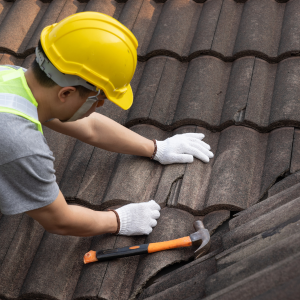
In Texas real estate deals, the buyer and seller are both responsible for repairs that need to be done after the closing. This is written in the fine print of their purchase agreement. In this state, buyers often do one last walk-through before closing to make sure that all the repairs that were agreed upon have been made.
However, if there are any problems after closing, the buyer has to write to the seller within a certain amount of time and explain the situation. The seller can either fix the problem or give money to compensate for it.
If neither party does anything, the buyer can go to court or mediation to get what they want. Before signing anything in a Texas real estate transaction, both sides need to carefully review and understand their rights and responsibilities regarding repairs that need to be done after the deal is closed.
Understanding The Scope Of A Seller’s Repair Responsibilities In Texas
The seller is responsible for any post-closing repairs in Texas real estate transactions. This means the seller is responsible for completing any necessary repairs before selling the property.
However, it is critical to understand the extent of these repair responsibilities. According to Texas law, sellers are only responsible for repairing items that are classified as “material defects,” which significantly impact the property’s value or safety.
Furthermore, sellers are not liable for cosmetic or minor issues unless expressly agreed upon in the contract. Both buyers and sellers must carefully review and negotiate repair responsibilities during the contract process to avoid misunderstandings or disputes after closing.
Buyer Beware! Clarifying A Seller’s Liability For Repairs After Closing In Texas

In Texas, buyers should be aware of the seller’s liability for repairs after closing on a real estate transaction. In general, the buyer is responsible for thoroughly inspecting the property and negotiating any necessary repairs before closing.
However, in some cases, sellers may be held liable for defects that were not disclosed or concealed during the inspection process. If the buyer believes the seller should cover the costs of post-closing repairs, this can become a contentious issue.
In the purchase contract, buyers and sellers must clearly define their expectations and responsibilities for post-closing repairs to avoid confusion and potential legal disputes.
Unpacking The Grey Areas: Exploring Potential Disputes Over Seller Repair Obligations In Texas
In Texas, the responsibility for post-closing repairs in real estate transactions can be unclear, leading to disputes between buyers and sellers. This is because no specific law or standard practice governs who is responsible for repairs after the sale has been completed.
Instead, it is frequently determined by the language used in the purchase agreement and subsequent negotiations between the parties. However, this can cause confusion and disagreements about which repairs are the seller’s responsibility and which are the buyer’s.
To better understand this issue, it is necessary to examine common scenarios and potential disputes involving seller repair obligations in Texas real estate transactions.
A Comprehensive Guide To Post-closing Repair Agreements Between Buyers And Sellers In Texas

Post-closing repairs are a major factor buyers and sellers in Texas real estate transactions must consider carefully. These repairs cover any problems or damage resulting from a property sale closing.
Both sides must clearly know who is in charge of these repairs and how they will be done. Usually, the seller is obligated to make any required repairs prior to the closing date.
Nevertheless, buyers can also bargain for contract inclusion of repair agreements. This thorough guide will give buyers and sellers in Texas useful knowledge on post-closing repair agreements, outlining their obligations and possible choices for handling repairs following closing.
Simplifying A Seller’s Duties For Repairs After Closing In The State Of Texas
In Texas, buyers and sellers must understand their responsibilities regarding post-closing repairs in real estate transactions. While many people believe that the seller is solely responsible for any repairs required after the sale, this is not always the case.
In fact, under Texas law, the seller’s obligations for post-closing repairs are largely determined by what was agreed upon in the purchase agreement. This means that both parties must carefully review and negotiate this section of the contract prior to signing.
Buyers may be responsible for repairs if they discover hidden defects during home inspections. Understanding and clarifying these obligations in the contract will help buyers and sellers avoid confusion or disputes after the closing.
Don’t Get Caught Off Guard: Familiarizing Yourself With Potential Post-closing Repair Scenarios In Texas
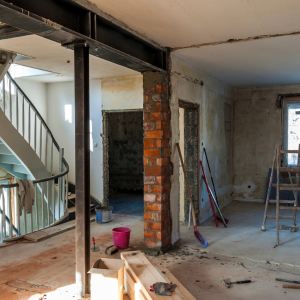
In Texas real estate transactions, both buyers and sellers must understand their responsibilities for post-closing repairs. While the general rule is that the seller is responsible for any necessary repairs prior to closing, there are some situations in which the responsibility shifts to the buyer.
For example, if the contract states that the property is being sold “as-is” or if the buyer agrees to inspect and accept any potential issues with the property, the buyer may be liable for post-closing repairs. To avoid surprises or disputes after closing, both parties must thoroughly review and understand all of the contract’s terms and conditions.
Being familiar with potential post-closing repair scenarios can help you avoid future unexpected expenses or legal complications.
Examining Common Misconceptions About A Seller’s Responsibility For Repairs After Closing In Texas
There are several misunderstandings about who is responsible for post-closing repairs in Texas real estate transactions. A common misconception is that the seller is automatically liable for all repairs after closing.
However, under Texas law, the seller’s responsibility is generally limited to repairs explicitly outlined in the contract or required by law. Another false belief is that sellers are accountable for defects uncovered during inspection.
In fact, it is the buyer’s responsibility to thoroughly inspect the property and negotiate any necessary repairs before closing. Additionally, some people think that sellers are obligated to provide a warranty for the property after closing.
While a warranty can be part of the contract, it is not mandated by law and should be negotiated by both parties. It’s crucial for both buyers and sellers to clearly understand their responsibilities regarding post-closing repairs to prevent misunderstandings or disputes during the transaction.
Protecting Your Interests: Strategies For Negotiating Seller Repair Obligations Before Closing In Texas
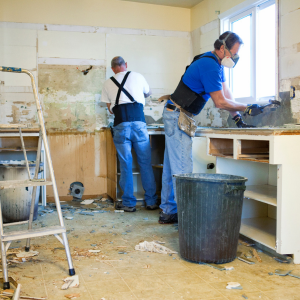
Buyers should protect their interests in Texas real estate transactions regarding post-closing repairs. While the seller typically has this responsibility, buyers can use strategies to negotiate these repair obligations prior to closing.
One strategy is to thoroughly review the property inspection report and identify any major issues that the seller may need to address. Buyers can also negotiate for a specific dollar amount or percentage of the sales price that the seller will cover in repairs.
Buyers should also include a clear timeline for completing any necessary repairs in the contract. By taking these proactive steps, buyers can protect their interests and avoid post-closing disputes.
Navigating Exceptions And Limitations On A Seller’s Liability For Repairs After Closing In Texas
Repairs needed after the closing can be a point of contention between buyers and sellers in Texas real estate deals. People on both sides may be curious about who is paying for these repairs and what liability might come with them.
It is important to know that there are some exceptions and limits to the seller’s duty to make repairs after the closing. Most of the time, these exceptions and limits are negotiated and written into the purchase contract. Before signing, it is very important for both buyers and sellers to carefully read and understand these terms.
It is also a good idea to talk to a qualified real estate lawyer about any possible disputes or questions you may have about repairs that need to be done after the closing.
Is It Ever Too Late? Understanding Post-closing Options For Resolving Disputes Over Repairs In Texas

After closing on Texas real estate transactions, many buyers and sellers often have concerns regarding the allocation of responsibility for post-closing repairs or handling issues that occur within the reasonably predictable period surrounding the sale. Usually, this is left up to the seller; nevertheless, disagreements sometimes occur over the number of repairs or their quality.
In such situations, it is critical for all parties to consider possible approaches to the problem and establish a fair means of settling the problem. Whether through negotiations, mediation, or actions in a court of law, one thing is clear: it is never too late to resolve post-closing repair issues through reasoned concessions.
With these “ground rules” in mind, buyers and sellers will appreciate the responsibilities of every person in the transaction, including the defenders, and the options available for settling disputes in the real estate process. This allows buyers and sellers to smoothen the course of real estate transactions in Texas.
Maximizing Protection: Tips For Including Strong Contract Language Regarding Repairs After Closing In Your Agreement
In Texas real estate transactions, both buyers and sellers must clearly understand who is responsible for post-closing repairs. If this is not addressed properly in the agreement, it can often lead to conflict.
Strong contract language regarding post-closing repairs should be included to maximize protection and avoid disputes. This should clearly outline each party’s responsibilities and include specifics about the scope of repairs, deadlines, and potential consequences for noncompliance.
Furthermore, including provisions for inspections or a walk-through prior to closing can help identify potential repair issues that must be addressed beforehand. By carefully crafting this language into the agreement, both buyers and sellers can ensure a smooth and equitable resolution in the event of post-closing repair needs.
The Ins And Outs Of Insurance Coverage For Post-closing Repairs As A Buyer Or Seller In Texas
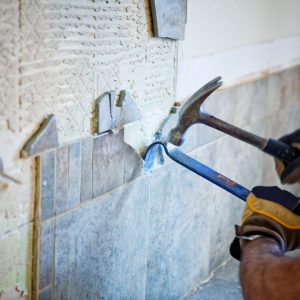
In Texas, the responsibility for post-closing repairs can cause confusion and potentially lead to disputes in real estate transactions. As a buyer or seller, you should understand how insurance coverage applies to these repairs.
Unless otherwise specified in the purchase agreement, the seller is typically responsible for any necessary repairs that occur after closing. Buyers should always conduct a thorough inspection before closing to ensure that they are aware of any potential problems and can negotiate repairs if necessary.
Furthermore, both parties must have adequate insurance coverage in place to protect against unexpected repair costs. This includes having adequate homeowner’s and title insurance to protect against property defects or issues.
Understanding the role of insurance in post-closing repairs can help buyers and sellers avoid potential conflicts and ensure a smooth transaction.
Common Pitfalls To Avoid When Addressing Post-closing Repair Obligations With The Seller
In Texas real estate transactions, buyers and sellers frequently disagree about who is responsible for post-closing repairs. To avoid common pitfalls, both parties should carefully review their contractual obligations for post-closing repairs.
One common mistake is assuming that the seller will handle all repairs when, in reality, the contract may only require the seller to make specific repairs up to a certain cost. Another pitfall is failing to properly document and agree on any agreed-upon repairs prior to closing.
This can result in disputes and delays in completing necessary repairs. Buyers should also be aware of any clauses that allow the seller to select the method or contractor for repairs, as this may result in substandard workmanship.
By being diligent and clear about post-closing repair obligations, buyers and sellers can avoid potential conflicts and ensure a smooth transaction flow.
Avoiding Surprises: Conducting Thorough Inspections To Identify Potential Repair Issues Before Closing In Texas
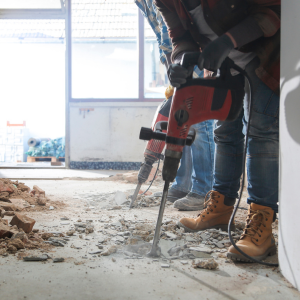
When it comes to post-closing repairs in Texas real estate transactions, it’s critical to avoid surprises. One approach is to conduct thorough inspections prior to the closing date.
This step allows buyers to identify potential repair issues and negotiate with the seller to have them addressed before completing the transaction. To avoid conflicts or misunderstandings, both parties must clearly understand their responsibilities regarding post-closing repairs.
Buyers can make informed decisions about their purchase by thoroughly inspecting the property and being fully aware of any potential repair costs.
Buyer Vs Seller Responsibility: Examining The Prevalence Of Post-closing Repair Disputes In Texas
Post-closing repairs in Texas real estate transactions sometimes cause buyer and seller conflicts. Usually stated in the contract, the responsibility for these repairs is clear-cut depending on the particular transaction conditions.
While in some situations, the seller may be liable for any repairs required following closing, the buyer could be in others. To prevent any possible conflicts, both sides should carefully review their agreement’s terms and grasp their different obligations.
Still, post-closing repair conflicts abound in Texas real estate transactions, notwithstanding well-defined rules. To guarantee a seamless post-closing process, this emphasizes the need for complete communication and negotiations between buyers and sellers before deciding on a deal.
The Importance Of Clear Communication: Building A Solid Foundation For Successful Post-closing Repairs In Texas
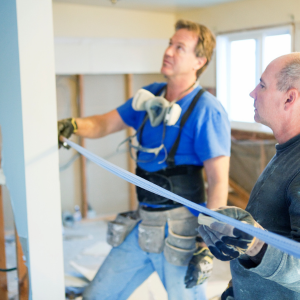
In Texas, post-closing repairs can often cause conflict and confusion for both buyers and sellers in real estate transactions. With so many parties involved, clear communication is essential in determining responsibility for these repairs.
Throughout the post-closing process, all parties must thoroughly understand their roles and obligations. Failure to communicate effectively can cause delays, misunderstandings, and even legal disputes.
As a result, establishing a strong foundation of open and effective communication from the start is critical to ensuring successful post-closing repairs in Texas real estate transactions. This includes setting clear expectations, timelines, and responsibilities for both buyers and sellers.
Setting this foundation allows all parties to collaborate on a smooth and satisfactory resolution of any possible post-closing repair issues.
How Long Are You Liable After Selling A House In Texas?
Both buyers and sellers of Texas homes worry about post-closing repairs. They wonder who pays for these repairs and how long they are liable after the sale.
Texas sellers are responsible for post-closing repairs unless otherwise stated in the purchase contract. This liability expires.
The seller’s liability usually ends once the buyer takes possession and all parties sign the closing documents. Both parties must carefully review and negotiate purchase contract repair clauses to clarify their rights and responsibilities.
Failure to do so may result in unexpected repair costs after the sale.
What Happens If You Buy A House And There Is Something Wrong With It?

When buying a home in Texas, knowing who is responsible for post-closing repairs is critical. In most cases, the seller is liable for any issues arising after completing the transaction.
This means that if you buy a house and discover a problem, such as a leaky roof or faulty plumbing, the seller is legally obligated to pay for the repairs. However, before finalizing the transaction, you should carefully review your contract and negotiate any specific terms for post-closing repairs.
Before closing, a thorough home inspection is also recommended to identify and negotiate any potential problems with the seller. Understanding your rights and responsibilities as a buyer will help you avoid disputes and unexpected costs associated with post-closing repairs in your Texas real estate transaction.
How Long After You Buy A House Can You Sue The Seller In Texas?
Knowing who is responsible for post-closing repairs is critical when buying a home in Texas. In most cases, the seller is liable for any issues arising after completing the transaction.
This means that if you buy a house and discover a problem, such as a leaky roof or faulty plumbing, the seller is legally obligated to pay for the repairs. However, before finalizing the transaction, you should carefully review your contract and negotiate any specific terms for post-closing repairs.
A thorough home inspection is also recommended before closing to identify and negotiate any potential problems with the seller. Understanding your rights and responsibilities as a buyer will help you avoid disputes and unexpected costs associated with post-closing repairs in your Texas real estate transaction.
These details apply to all of Texas, including cities like Houston, Irving, Dallas, Arlington, and Fort Worth, as well as their surrounding areas. For additional assistance or specific inquiries, call us at (800) 467-0003. Visit our website, Sell My House Fast Now, for more information and a full description of our services.
More Resources For Sellers In Texas
| [ | |||||
| “ | ] | “ | ] |


